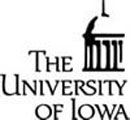page maintained by
David Peate © 2018
Classes taught at the University of Iowa
EES:1000 First-year seminar or HONR:1300 Honors First-year seminar (1 s.h.)
The title of this class is "Rocks from the Sky: meteorites and impact craters". This is a small enrollment class (15-20 students) that allows incoming first-year undergraduates to interact with a faculty member during their first semester at Iowa. I take this opportunity not only to talk about exciting scientific topics, but also to act a a mentor by discussing more general issues such as study habits, faculty expectation, plagiarism, etc. Class activities include short writing assignments, internet research, class presentations and discussion, and computer activities using Google Earth and the Earth Impact Program that simulates the effect of impacts.
next offered: Fall 2018
EES:1060 Origins of Life in the Universe – part 1 (3 s.h.)
I team teach this interdisciplinary General Education class with colleagues from Astronomy, Geoscience, and Biology, to address questions such as: How old is the universe? What is the nature of life? How has life evolved on Earth? What are our human origins? Are there other habitable planets in the universe? These fundamental questions revolve around understanding origins from different perspectives, and students work together with faculty from across different departments to investigate these questions. We use inquiry-based activities to build success in critical thinking, teamwork, and effective written and oral communication. Topics include the origin of the universe, the biochemistry of life, and the origin of life on Earth. It is designed for first and second year students, and it is intended to be taken over two semesters. Students should plan on taking the spring semester course (part 2: 012-046) that includes a 1 s.h. lab. If taken in its entirety (recommended), this course fulfills the 7 s.h. natural sciences GE requirement.
next offered: unknown
EES:3410 Analytical Methods (2 s.h.)
This class discusses the theory and practice of analyzing the chemical, isotopic, and mineralogical compositions of rock, soils, waters, and other inorganic materials. It is suitable for any senior undergraduate and graduate students in Geoscience, Environmental Science, Chemistry, and Chemical Engineering. Students will learn about how to collect and evaluate analytical data, focusing on error analysis, understand the principles of how modern analytical instruments work, and gain practical experience of using electron microprobe and inductively-coupled plasma mass spectrometer instruments. Each student will do a class project involving the acquistion and interpretation of analytical data.
next offered: Spring 2019
EES:3500 Igneous and Metamorphic Petrology (4 s.h.)
This course is team taught with Prof. Foster. I teach the first half of the class (up to Spring Break) on Igneous Petrology, and then Prof. Foster takes over to teach Metamorphic Petrology.
The first part of the course focuses on: (i) how magmas are formed, (ii) the processes that produces the wide diversity of igneous rock types, and (iii) why magmas formed in different tectonic settings can have different compositions. Students will be given a solid foundation in the techniques used to study igneous rocks, including petrographic observations, experimental petrology and phase relations, major and trace element compositions of rocks, radiogenic and stable isotope compositions, mineral compositions, and modelling methods.next offered: Spring 2019
EES:4490 Elements of Geochemistry (3 s.h.)
This class provides students with a basic introduction to Geochemistry and it is taught every other Fall semester. It is suitable for any senior undergraduate and graduate students in Geoscience, Chemistry, and Chemical Engineering that wish to learn how basic chemical principles can be used to infer the processes that formed our planet and modified its evolution through time. Major topics of study include: origin of the elements, chemical differentiation of the Earth and the Solar System, geochronology, applications of radiogenic and stable isotopes, trace element behaviour, chemical equilibrium, elementary thermodynamics and kinetics, carbonate and silicate stability relationships, chemical weathering, oxidation-reduction processes, characterization of surface waters, ocean chemistry, geochemical cycles, and geo-archaeology.
next offered: Fall 2018
EES:5530 Geochronology (3 s.h.)
Geochronology – the science of determining the absolute ages of Earth materials – is critical to all areas of Geoscience, including stratigraphy, palaeontology, Quaternary geology and geomorphology, hydrogeology, tectonics, igneous and metamorphic geology. The aim of this graduate-level course is to provide students with a range of important skills for their research and professional careers, in particular (i) how to evaluate published ages, to understand the assumptions and potential sources of uncertainties of different dating methods, and to understand exactly what event is being dated, and (ii) how to select and sample suitable materials for geochronology and to choose a suitable dating method and analytical technique. The topics covered include: basic systematics of dating techniques; sample selection and preparation; analytical methods; error analysis and assumptions; linking geological time scale and radiometric dates; standard Rb-Sr, Sm-Nd, Lu-Hf & Re-Os isochron methods, Pb-Pb and U-Pb dating (including carbonates and zircons); K-Ar and Ar-Ar methods; U-series disequilibrium methods; low-T thermochronology (U-Th-He & fission track); 14C and other cosmogenic nuclides; TL and other luminescence methods; extinct radionuclides; Sr isotope stratigraphy; magnetic reversals and orbital tuning of marine sediments from oxygen isotope & astronomical data.
next offered: Fall 2019
EES:6570 Tectonics and Petrology Seminar (1 s.h.)
I teach this class on rotation with other faculty members. The goal is to provide a forum for senior undergraduate and graduate students to discuss topics of interest in Tectonics, Petrology and Geochemistry on a regular basis. It is an opportunity for students to read and critique current literature, as well as to improve their presentation skills. The format of the class is a brief presentation of the main points of a journal article ('PowerPoint' or overheads: 5-10 mins) by a student, followed by a discussion of the paper lead by the student presenter: grades are based on participation, so all students are expected to engage in the discussion.
Theme in Fall 2018: Geological evolution of the South China Sea regionnext offered: Fall 2018

